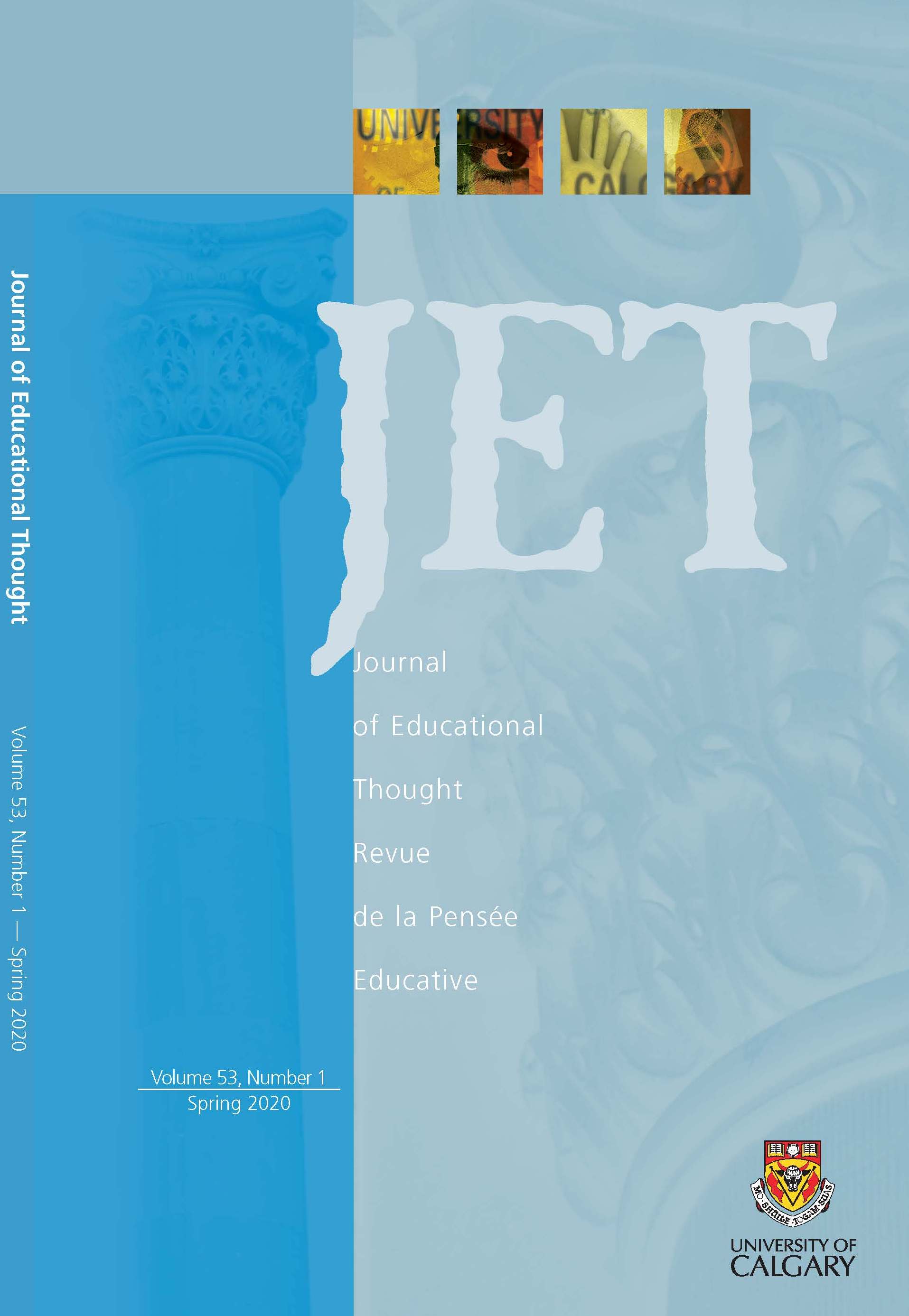The naturalization of English: Using Bourdieu's concepts of cultural capital, symbolic power, and pedagogical action to analyze Canadian language policies
DOI:
https://doi.org/10.55016/ojs/jet.v53i1.71098Abstract
Although the concepts cultural capital, symbolic power, and pedagogical action were originally applied to describe how education reproduces social relations in France, Bourdieu’s sociological framework can be applied to illustrate the pervasive connection between language and colonialism in Canada. When applied to an analysis of the history of Canadian settlement and
education practices between 1755 and until the present, these concepts demonstrate how colonial relations are reproduced through policies, educational programming and practices that
inflate the value of English as the official language of Canada. While Bourdieu’s concepts provide an analytical framework to illustrate how colonialism operates and why language continues to
have an impact on the economic outcomes of Indigenous People and immigrants, the framework on its own tends to be socially deterministic and requires decolonizing strategies to support
interventions that will encourage equitable language policy, programming and practice.
Downloads
Published
Issue
Section
License
The Journal of Educational Thought retains first publication rights for all articles. The Journal grants reproduction rights for noncommercial educational purposes with the provision that full acknowledgement of the work’s source be noted on each copy. The Journal will redirect to the appropriate authors any inquiries for further commercial publication of individual articles. All authors wishing to publish in JET will be asked to fill in and sign a Consent to Publish and Transfer of Copyright agreement.
Authors must affirm that any submission to JET has not been and will not be published or submitted elsewhere while under considration by JET.

